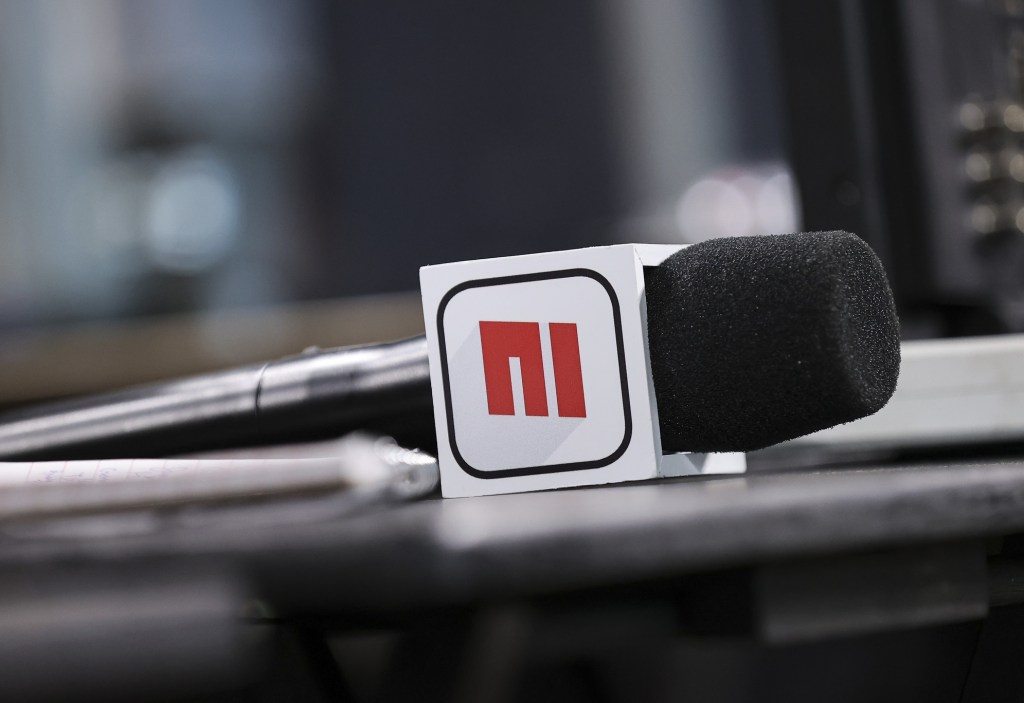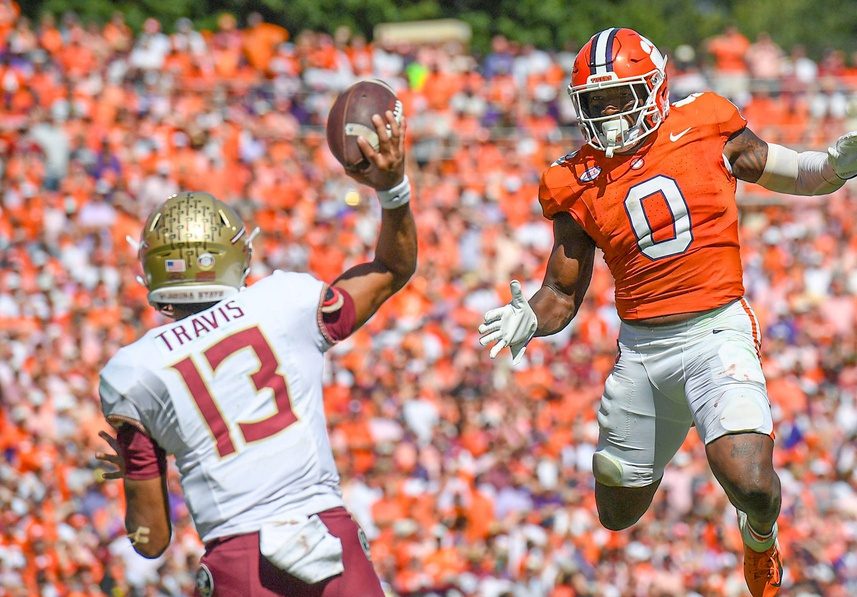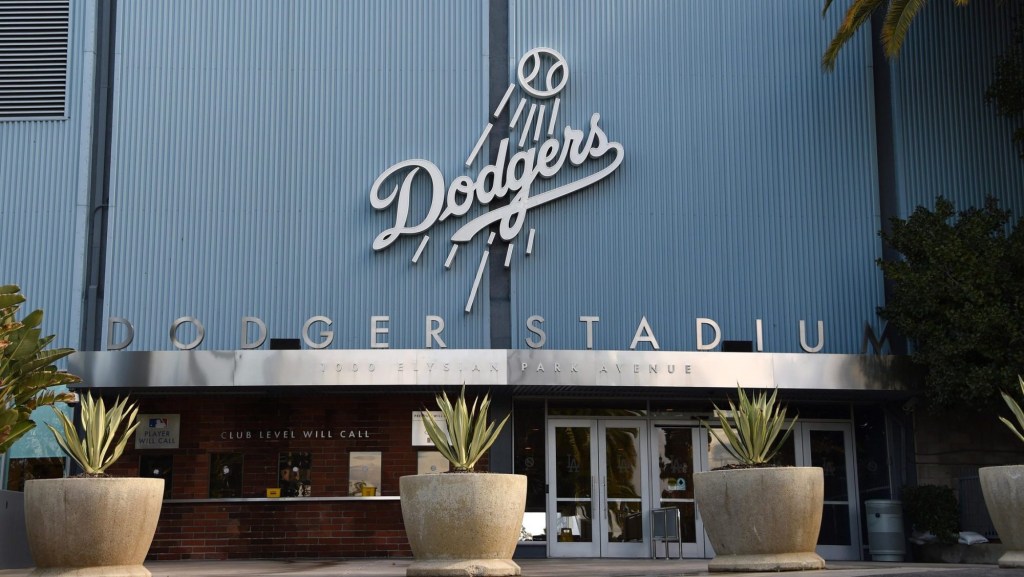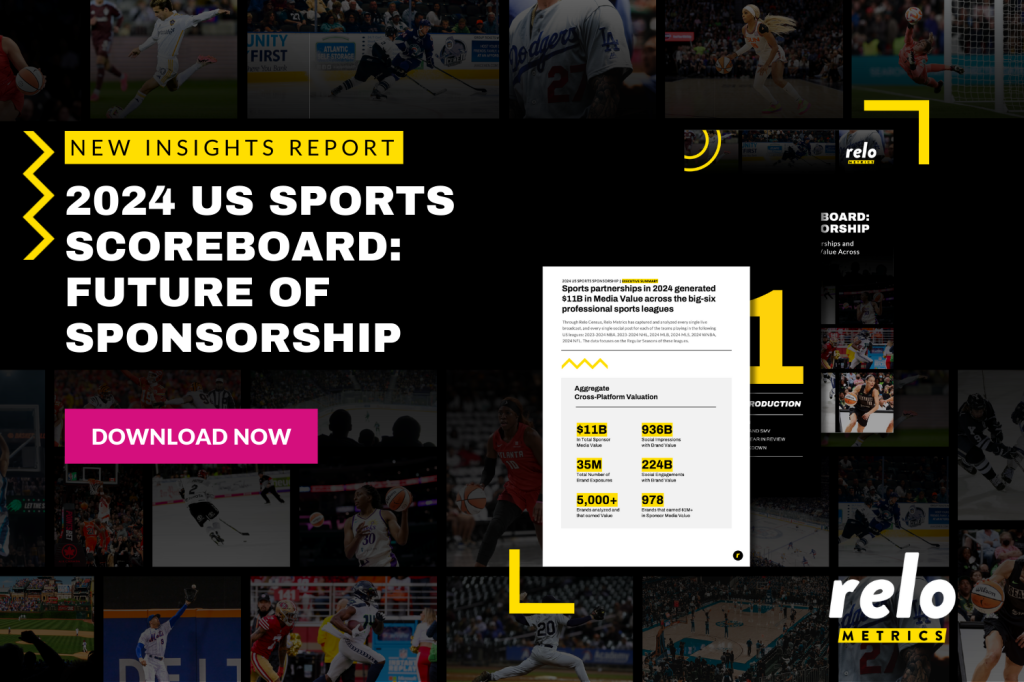Morning Edition |
March 4, 2025 |
|
|
MLB and ESPN will end their national partnership after 35 years. But the network may have found a new way to feature baseball on its upcoming Flagship platform.
Would you subscribe to a streaming platform to watch your local baseball team? Reply to this email; the best responses may be used in a future mailbag.
—Eric Fisher, David Rumsey, and Colin Salao
|
|
|

|
Troy Taormina-Imagn Images
|
There could be a back door, of sorts, that allows ESPN to get back into the business of broadcasting Major League Baseball.
The Disney-owned network, according to a report in The Wall Street Journal, has been in conversations with Main Street Sports about placing content from that company’s regional sports networks within ESPN’s forthcoming direct-to-consumer streaming service, informally called Flagship.
A potential streaming bundle deal between Flagship and Main Street Sports’ FanDuel Sports Network would tie into several emerging trends at once. A deal, if completed, would:
- Allow ESPN to have MLB content at a lower cost. The recently reorganized Main Street Sports has rights to nine MLB clubs in its portfolio after the return of the Reds in January. ESPN, meanwhile, is opting out of the last three years of its national-level MLB deal, objecting to the $550 million per year fee, and those rights will terminate after the 2025 season.
- Give a further boost to Flagship, which remains one of Disney’s most pressing corporate priorities. Having baseball in the summer would likely help reduce subscriber churn, even ESPN has shown confidence in addressing the schedule gap through other entities such as the NBA, NHL, WNBA, and US Open tennis.
- Tap further into an industry pull toward streaming bundles that are showing greater effectiveness.
- Allow ESPN to be a partial answer to the highly challenged realm of regional sports media. Last summer, ESPN chairman Jimmy Pitaro said he wanted to “be at least part of the solution.”
- Supplement ESPN’s national coverage of the NBA and NHL with additional regional games.
Thematically, an ESPN–Main Street Sports deal would also bear some similarity to the RSN operator’s separate distribution deal with Amazon that makes individual networks available through Prime Video as an add-on option. The Amazon deal is not exclusive, and it was always contemplated that Main Street Sports would strike additional distribution agreements.
ESPN and Main Street Sports declined to comment. In a recent statement regarding the split from MLB, however, ESPN said, “We remain open to exploring new ways to serve MLB fans across our platforms beyond 2025.”
|
|
|
|

The landmark settlement between Florida State, Clemson, and the ACC, expected to be finalized this week, doesn’t end all chaos in college football—but it does bring a certain sense of stability to the sport that has been rocked by conference realignment in recent years.
Should the parties successfully settle their four collective lawsuits, the ACC will have secured its future with its current 18 members (17 for football, with Notre Dame remaining independent in the most valuable sport) until at least 2036, when its grant of rights contract expires.
While the Big Ten and SEC remain the dominant conferences on and off the field, a stable ACC is still key for the College Football Playoff, which is exploring format changes like bracket seeding for this upcoming season, and even bigger moves in 2026, like further expansion.
The ACC placed two teams into the inaugural 12-team CFP after Clemson upset SMU in the conference championship game. The Tigers earned an automatic playoff berth, and the Mustangs were awarded the final spot in the field, controversially booting Alabama.
Power Moves
While it was unlikely FSU or Clemson would have left the ACC ahead of the 2025 college football season, sustained uncertainty around their place in the conference would have further complicated what comes next for the sport’s power brokers.
Any changes to the format for 2025 will require approval from the CFP management committee, which consists of 10 conference commissioners—including the ACC’s Jim Phillips—and Notre Dame’s athletic director, as well as the board of managers, comprising 11 university presidents and chancellors.
However, in 2026, power will shift to the Big Ten and SEC, which will have the majority of control on decision-making from then on under the CFP’s new contract.
Picking Up the Pieces
Despite the unexpected peace, it’s still entirely possible FSU and/or Clemson will grow unhappy with their conference affiliation before 2036. As evidenced by the $100 million early exit of Texas and Oklahoma from the Big 12 to the SEC, moves can happen quickly.
Meanwhile, the Pac-12 is still rebuilding, as it needs to add one more football-playing member by 2026 to retain its Division I status. Incumbents Oregon State and Washington are set to be joined by Boise State, Utah State, San Diego State, Fresno State, Colorado State, and Gonzaga (no football).
|
|
|
|

|
Lucas Boland-Imagn Images
|
Azzi Fudd could easily be a first-round pick—and potentially a top-five selection—in the WNBA draft in April. But the 22-year-old may choose to return to UConn next year after she missed most of last season with a torn ACL, and she told reporters Saturday that she’s still unsure about her decision.
“I think I have to sit down and talk with my family, with the people closest to me, and just talk through the decisions, options,” Fudd said. “I think a pros-and-cons list is in my near future.”
Fudd isn’t the only top pick who could return to the NCAA next year. Paige Bueckers, Fudd’s teammate and the projected No. 1 pick, can also return for a fifth year due to an eligibility waiver from the COVID-19 season—and because she missed the 2022–2023 season with an ACL tear.
Notre Dame’s Olivia Miles, a potential top-three pick, could also return to college next season. UCLA’s Lauren Betts is eligible for the 2025 WNBA draft, but she announced earlier this month that she will return to the Bruins for her senior season.
Most of the other NCAA stars projected to be top picks are out of eligibility years and are expected to declare for the draft. Some of those names include:
- Georgia Amoore, Kentucky
- Sonia Citron, Notre Dame
- Kiki Iriafen, USC
- Aneesah Morrow, LSU
- Te-Hina Paopao, South Carolina
- Sedona Prince, TCU
- Saniya Rivers, NC State
- Shyanne Sellers, Maryland
- Hailey Van Lith, TCU
Unlike the NBA, where players need to be only one year removed from high school to declare for the draft, NCAA women’s basketball players must be at least 22 years old during the year of the WNBA draft to be eligible. International players must be at least 20 years old, and there are several potential international first-round picks this year including French center Dominique Malonga, who turns 20 in November.
Why Stay in College?
The decision between staying in college and going pro is not the same between men’s and women’s players. NCAA men’s basketball stars have the luxury of millions of dollars in guaranteed money once they go pro. And even though some men’s basketball stars are already receiving millions in NIL (name, image, and likeness) money in college, staying an extra year means potentially delaying hundred-million-dollar contracts.
The salary for the No. 1 pick in the 2025 WNBA draft will be less than $350,000 over four years—or an average of less than $87,500 per year, per Spotrac. There is a strong possibility that WNBA salaries rise significantly starting in 2026 when the new media-rights deal and potential new CBA kick in. But that does not guarantee changes in the rookie-scale deals and could even favor those who choose to wait until 2026 to be drafted.
A roster slot in the WNBA is also no guarantee, even for some first-round picks. The WNBA has only 13 teams—the Golden State Valkyries joined this year—with just 12 players per team. Some first-round picks never even make the team, a notable example being Mya Hollingshed, the No. 8 pick in 2022, who has not played a single game in the WNBA.
In 2026, the Toronto Tempo and a still-unnamed Portland expansion franchise will join the WNBA, bringing the available roster slots from 156 to 180.
|
|
|
|

One of MLB’s oldest and most iconic stadiums is getting another upgrade—this time to primarily benefit the league’s most expensive roster.
Dodger Stadium, 63 years old and MLB’s third-oldest venue, has again been under extensive renovations this offseason, with work including upgrades to both clubhouses, batting cages, the weight room, and related team facilities. The roughly $100 million effort is something of a full-circle moment for the Dodgers and ownership group Guggenheim Baseball Management.
Soon after Guggenheim completed a record-setting, $2 billion purchase of the Dodgers in 2012, player facilities were a key early point of focus. After that, the team spent many years upgrading fan-facing areas at the stadium, including the substantially remade center field plaza that became a key part of operations during the 2022 All-Star Game and 2024 World Series at Dodger Stadium—also MLB’s largest and most heavily attended stadium.
The latest initiative brings the primary focus back to the players and their wellness, particularly the Dodgers’ aggressive offseason spending and MLB-leading luxury-tax payroll of $392.5 million, more than $70 million beyond the No. 2 Mets. The team’s commitments continue to reshape the league.
“I think we’re state of the art again, until five or ten years from now,” Dodgers president and CEO Stan Kasten said on MLB Network Radio regarding the stadium upgrades.
While the stadium renovations have been done this offseason, Dodgers stars, including Shohei Ohtani and Mookie Betts, were spotted working out at Los Angeles–area high schools.
No More “Walltimore”
The Orioles, meanwhile, are completing their own offseason stadium work at Oriole Park at Camden Yards by finishing an effort to move back in a left-field wall that had been the source of hefty controversy.
The team initially moved out that portion of the wall after the 2021 season, looking to have it play friendlier to pitchers. The effort, however, became seen as overly drastic, with that section becoming known as “Walltimore” and an estimated 137 potential home runs taken away by the field expansion. The latest change brings in the wall by 9 to 20 feet, depending on the specific location, and shortens it by 3 to 6 feet.
The likely increase in offense could be a boost for an Orioles team that has reached the postseason the last two years after an extended drought, and again has championship expectations.
“The feedback we received over three years of lived experience was that it was a directionally correct move, but we overcorrected,” Orioles GM Mike Elias said last fall of the prior wall movement.
|
|
|
|
|
Should star players like Paige Bueckers and Azzi Fudd stay in college another year or enter the WNBA draft?
|
|
Monday’s result: 69% of respondents think Rob Manfred will lift Pete Rose’s MLB ban before the end of his term.
|
|
|







